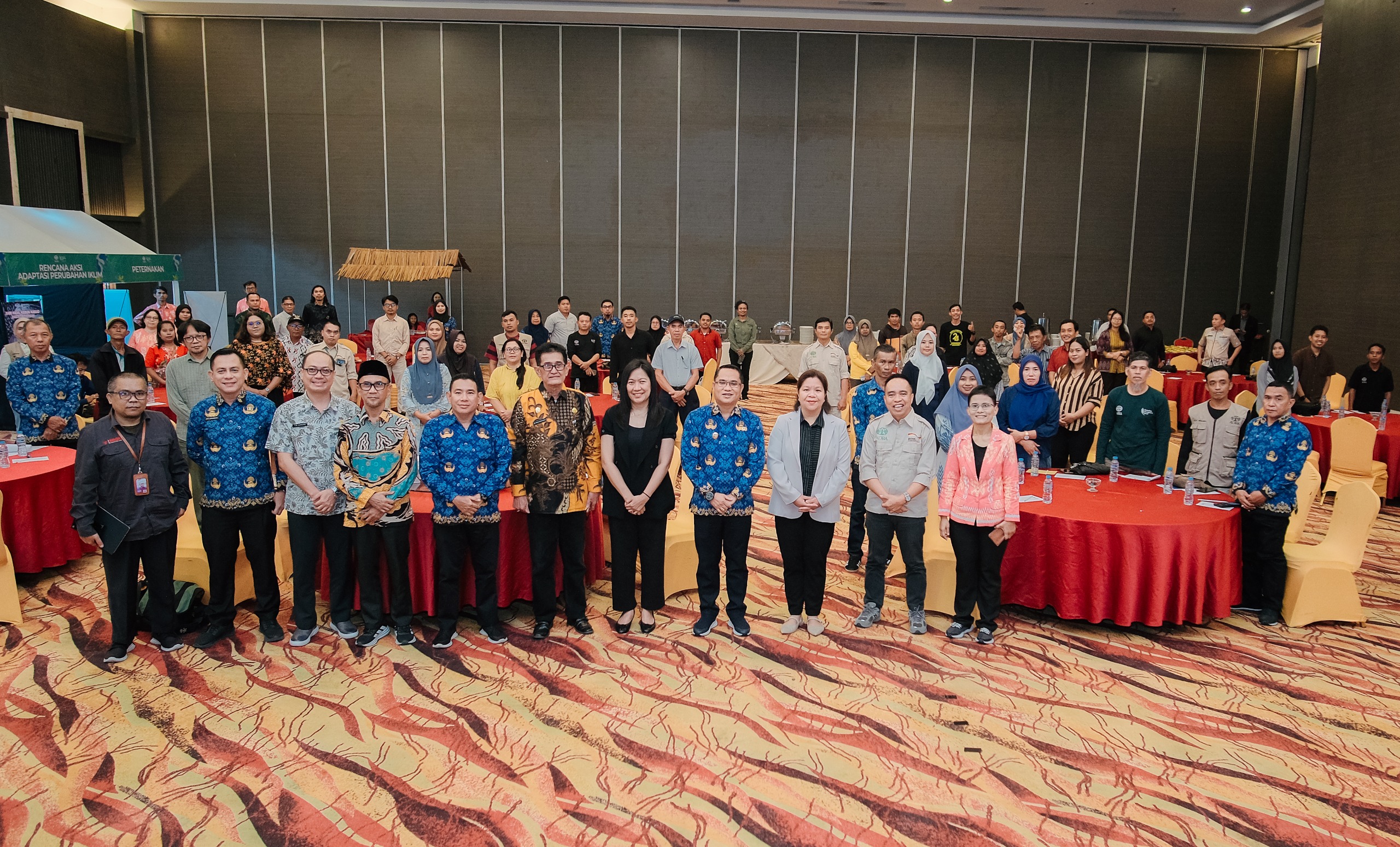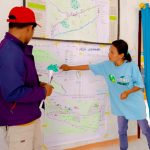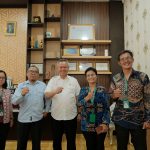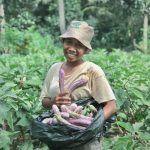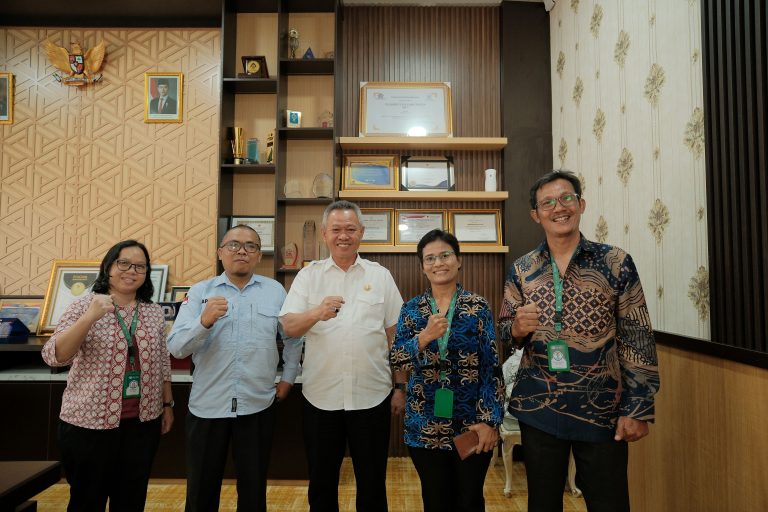SIGI, July 17, 2025, rindang.ID | After six years of assisting the people of Sigi Regency since the 2018 earthquake and liquefaction disaster, the Adventist Development and Relief Agency (ADRA) officially closed the second phase of the Recovery of Agriculture and Food Security Affected by Earthquake (REAF II) program. This closure is a reflective moment for various achievements in efforts to restore food security and community empowerment, the result of collaboration between ADRA Indonesia, the Sigi Regional Government, farmers, breeders, and MSME actors in rebuilding the post-disaster future.
The REAF II program is run by ADRA Indonesia with funding support from the Canadian Foodgrains Bank (CFGB) through ADRA Canada. This program comes as a form of joint commitment to strengthen food security, sustainable livelihoods, and empowerment of vulnerable groups in disaster-affected areas.
The closing ceremony was held in Palu City and attended by the Deputy Regent of Sigi, Samuel Yansen Pongi, local government representatives, farmers, MSME players, and implementing partners. The atmosphere of the event was even more lively with the presence of exhibition booths that displayed various program achievements, ranging from agricultural products, cocoa plantations, livestock, processed MSME products, to documentation of gender champion activities and various other good practices.
The cacao booth was one of the standouts, with a display of superior seedlings from the nurseries, fruits and quality cacao beans from the implementation of field school practices such as pruning and grafting.
The Deputy Regent of Sigi expressed his appreciation for the spirit of cocoa farmers in improving production quality independently and consistently. He said the results shown were not only proud, but also proved that local farmers have great potential if properly assisted. He also emphasized the commitment of the local government to continue to improve the support that has been running well so far, so that the development of farmers and the management of nurseries in Sigi is more focused, professional, and according to standards. The government hopes that in the future, Sigi can become a cocoa nursery center that is managed sustainably and become a reference for other regions.
Responding to farmers’ questions during a visit to the cocoa stand, the Deputy Regent emphasized that support from the government will continue. He said that what has been given so far will be improved through more targeted assistance by Regional Apparatus Organizations (OPD), especially the Plantation Service.
“We will continue to improve the existing support. What we have started, we will continue and strengthen through the Plantation Office so that the management of nurseries and the quality of our cocoa is getting better,” said the Deputy Regent during a dialog with farmers at the exhibition site.
Continued support from the government is a great hope for farmers, so that their efforts in maintaining the quality and sustainability of cocoa plantations continue to grow. The collaboration that has been established is expected to be a strong foundation for strengthening community independence and expanding benefits to more farmers in the future.
In her speech, Mildred Pantouw, Executive Secretary of ADRA Indonesia, emphasized the important role of women in the development process.
“We believe women are the key to change. Through this program, they are not just beneficiaries, but actors of development,” she said.
Resilience that Grows Together
The REAF II program began in 2022 and reached four affected villages, namely Jono Oge, Bangga, Omu, and Tuva villages, targeting more than 750 families. The main focus of the program is on two aspects: increasing household food availability and empowering women as agents of change.
A total of 24 farmer groups with 751 farmers received organizational assistance and technical training. Eight groups were strengthened through financial and savings and loan training. A total of 593 farmers are now implementing climate-friendly farming and livestock practices, while 53 farm agents and 28 livestock agents are actively sharing knowledge to their communities.
ADRA also provided support to 150 vulnerable households through livestock distribution and entrepreneurship training to 80 aspiring MSME entrepreneurs. A total of 47 local figures have been trained as gender champions. Another important achievement was the facilitation of the preparation of the Regional Action Plan for Climate Change Adaptation (RAD API), making Sigi the first district in Central Sulawesi to have this document collaboratively.
Stories of Change: Cocoa from Omu
In Omu Village, a farmer named Hatta felt the significant impact of the REAF II program. Previously, his cocoa farm was neglected. The situation changed after he attended a field school organized by ADRA through the REAF II program, where he learned pruning techniques, pest control, and farm management.
“I used to harvest only 7 kilograms. Now I can harvest 30 kilograms once, every two to three weeks,” he said.
Now, Hatta not only manages his own farm, but is also a village facilitator who shares his knowledge with other farmers – a tangible manifestation of the legacy of sustainable knowledge that ADRA instills.
Local Government Appreciation
The Sigi Regency Government expressed its appreciation for ADRA’s contribution which is considered strategic in post-disaster recovery and sustainable development.
“ADRA comes not only with aid, but with knowledge and the spirit of collaboration. They are our strategic partners,” said Deputy Regent of Sigi, Samuel Yansen Pongi.
He added that ADRA’s activities are in line with national priorities and regional missions in building an inclusive economy and maintaining environmental sustainability. The government has even officially recorded ADRA’s contribution in the regional financial report, and accountability to the DPRD and the public.


